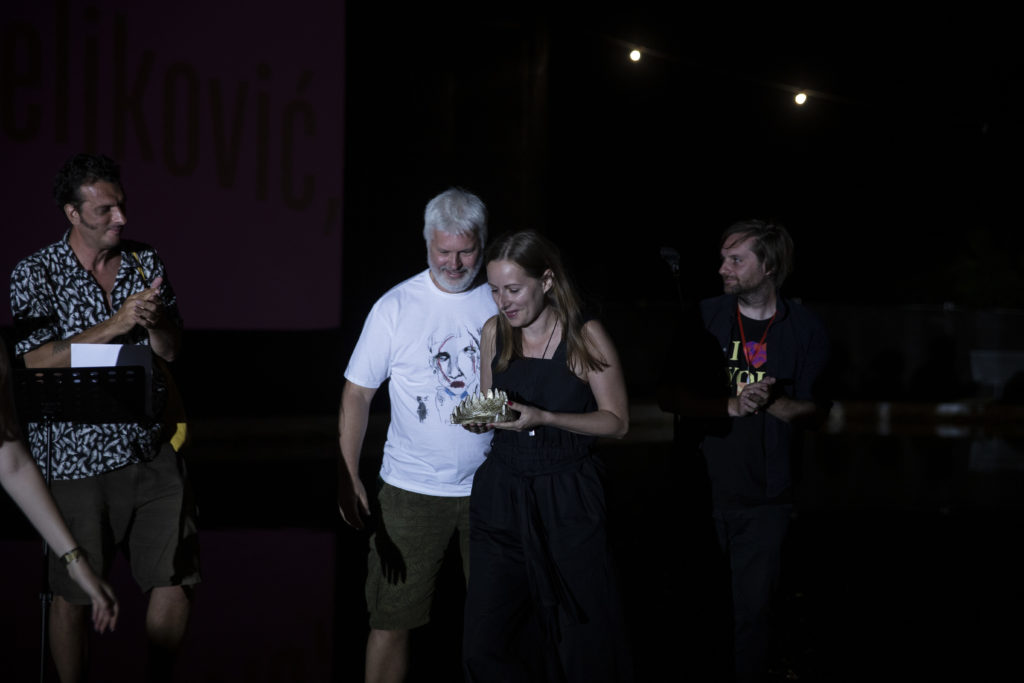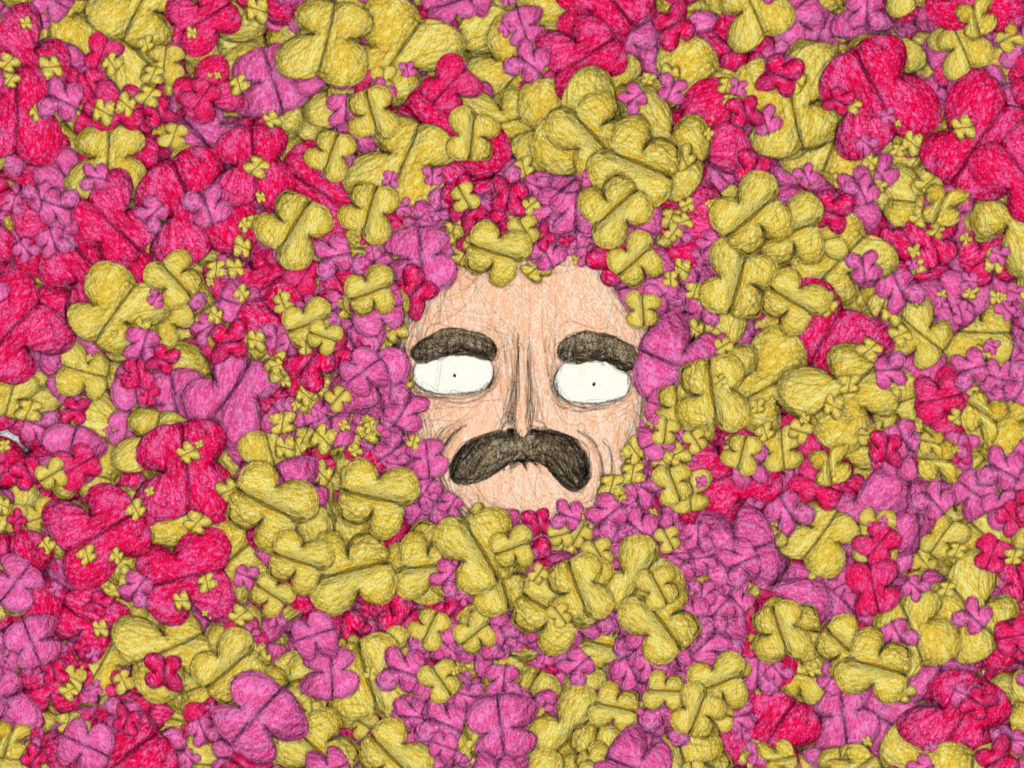“Beautiful Woman”: A family dedication, and invitation to acceptance in the name of Love.

Amanda, the woman who appears to us as a reflection of Butler’s gender performance
The entire first scene begins with the image of this woman, with an intense gaze and short curly hair, looking directly at the camera lens as if she has something to say. Something, that contains a determination within itself. Amanda is a woman in her thirties who appears in the background of a red room, as the main protagonist of the film “Beautiful Woman” by Dutch director Diëgo Nurse, which opens the special program “Queer Toons”, curated for the 14th edition of the International Animation Festival – Anibar in Peja.
The narrative in this film is divided into two dimensions. In the first dimension, Amanda’s living portrait is shown in a red room, reminiscent of the room photographers use for developing photographs, except Amanda is not developing a photograph but presenting her image, as if she wants to preserve it, just like photography, from the sensitivity of external light. What she has built is too valuable to destroy. The other dimension is black and white, presented through animation, like the memory that the woman holds deep within herself, the memory that belongs to Beyong and his experiences as an eight-year-old during his journey of transformation and self-discovery to Amanda, the transgender woman.
The story represented as a poetic journey, begins in a village where Beyong lives with his heterosexual parents and his brother. Far from new ideas but in constant conflict with himself, Beyong has difficulty understanding his feelings, even though he had accepted his femininity, which became the target of attacks from his own family, particularly his father. In the face of this masculine figure who had issues with his son’s femininity, he couldn’t escape but could only find comfort in his mother. As a woman, she understood.
The film brought me back to the readings of philosopher and gender studies scholar, Judith Butler, specifically to the notes in her widely known book “Gender Trouble: Feminism and the Subversion of Identity,” first published in 1990 and republished back in 1999. In that book, Butler questions the belief that certain gender behaviors are natural, illustrating how learned gender behavior (what we usually associate with femininity and masculinity) is a kind of act, a performance imposed on us by normative heterosexuality.
Two years ago, in an interview with “The Guardian”, on the 30th anniversary of her book, Butler revisited her theory of “performativity” of gender behavior as a debatable perspective on how gender functions, elaborating on what she had in mind when she wrote the book at that time. ” Performative” speech acts are the kind that make something happen or seek to create a new reality. When a judge declares a sentence, for instance, they produce a new reality, and they usually have the authority to make that happen. But do we say that the judge is all-powerful? Or is the judge citing a set of conventions, following a set of procedures? If it is the latter, then the judge is invoking a power that does not belong to them as a person but as a designated authority. Their act becomes a citation—they repeat an established protocol. She stated, asserting that what she wanted to convey to humanity 32 years ago was that consciously or not, we quote gender conventions when claiming to express our inner reality or even when saying we are recreating ourselves”.
Butler argued that no one can escape social norms, but the problem is that none of us is completely determined by cultural norms. And thus, according to her, gender becomes a negotiation, a battle, and a way to confront historical limitations and create new realities. Beyong, whose transformation is portrayed in the film “Beautiful Woman”, created his new reality – Amanda.
“When I put on the short dress, applied makeup and jewelry, and looked at myself in the mirror, everything became clear. There, I saw myself. I am a woman,” Amanda reveals in her monologue.
What makes this film special, is the message it conveys, among others, the peace that Amanda felt, as a transgender woman, the moment her mother accepted her. In an edition like this year’s edition of Anibar, where love becomes the theme, such a message comes as a gust of wind to open our eyes to the light, to understand that ultimately, love implies acceptance, and that acceptance begins with those closest to us, our own family, lovers, and friends.
This is the dedication that director Diëgo Nurse created for his family, as an apology to his nephew, with whom he reconnected only five years after he came out to his family about his sexual orientation.
Leonora Aliu





